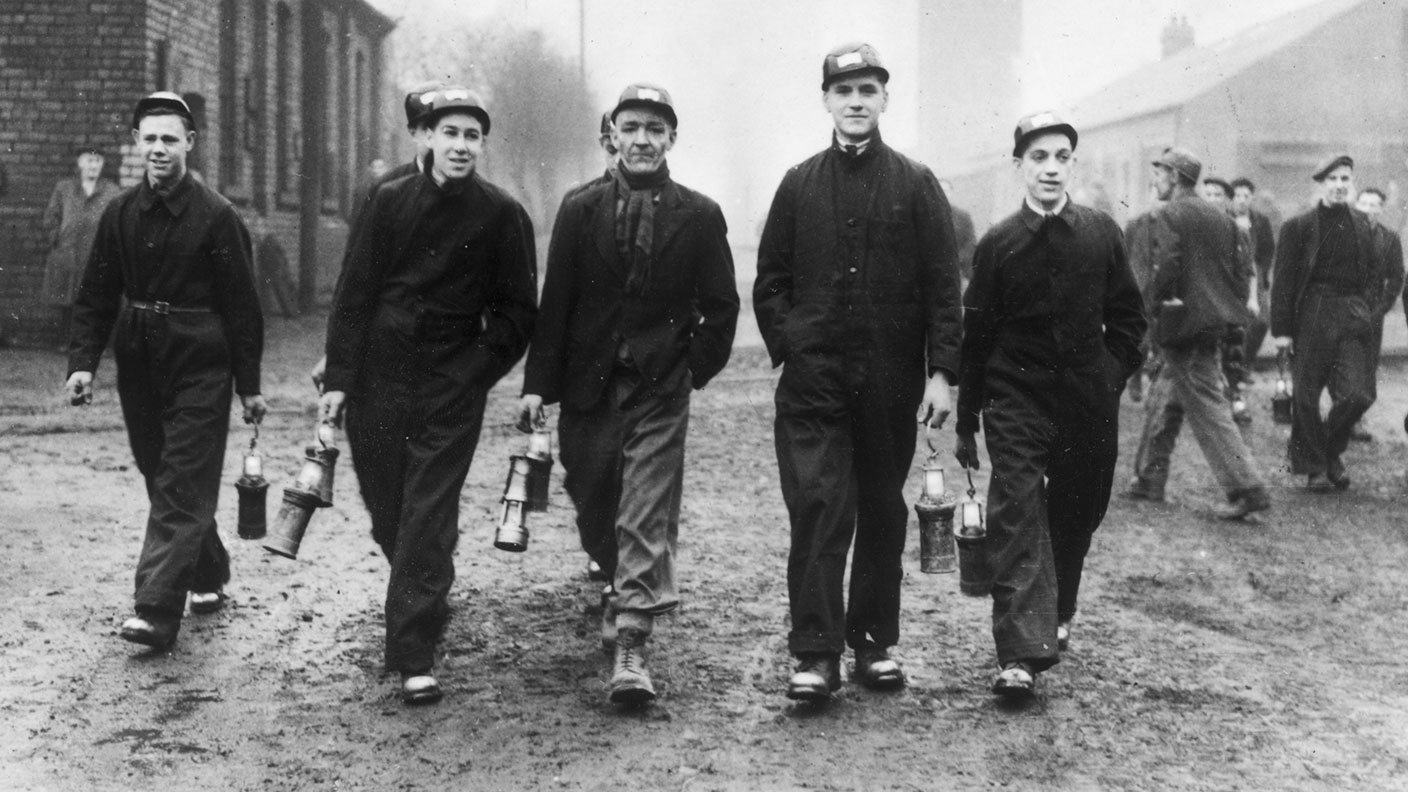
Get the latest financial news, insights and expert analysis from our award-winning MoneyWeek team, to help you understand what really matters when it comes to your finances.
You are now subscribed
Your newsletter sign-up was successful
Want to add more newsletters?

Twice daily
MoneyWeek
Get the latest financial news, insights and expert analysis from our award-winning MoneyWeek team, to help you understand what really matters when it comes to your finances.

Four times a week
Look After My Bills
Sign up to our free money-saving newsletter, filled with the latest news and expert advice to help you find the best tips and deals for managing your bills. Start saving today!
During the First World War, many working men were called up to serve in the armed forces, leaving the country desperately short of skilled workers to contribute to the war effort. So the government drew up a “Schedule of Reserved Occupations” whereby men within the stipulated ages working in the listed occupations would not be required to fight. For some clever reasons, the schedule failed to mention coalminers. Given that coal powered virtually all the country's industry, this was a fairly serious omission.
When WWII came round, thousands of miners signed up to fight. And by 1943, there was a severe shortage. While women were able to stand in for the absent men in many other occupations, they were not allowed to work underground as miners, having been banned in 1842.
From 1942, people called up for war service were given the option of working in the mines as an alternative to military service – 13,000 or so chose this option. They were joined by people with mining experience serving in the army at home. But that still left the industry short of some 50,000 men.
MoneyWeek
Subscribe to MoneyWeek today and get your first six magazine issues absolutely FREE

Sign up to Money Morning
Don't miss the latest investment and personal finances news, market analysis, plus money-saving tips with our free twice-daily newsletter
Don't miss the latest investment and personal finances news, market analysis, plus money-saving tips with our free twice-daily newsletter
And so, on this day in 1943, the Minister of Labour, Ernest Bevin, stood up in the Commons to announce a new compulsory recruitment scheme. Rather than be sent off to give old Jerry a damn good hiding, one in ten random conscripts between the ages of 18 and 25 – no matter what their background or how well suited they were to manual labour – became “Bevin Boys” and instead were sent for six weeks‘ training, then down the mines to dig for coal. Refusal could land them in jail.
In all, some 21,000 men who thought they were going to fight ended up underground in this way. The scheme continued well past the war, until 1948.
Churchill gave a speech backing the Bevin Boys: “one will say ‘I was a fighter pilot'; another will say ‘I was in the Submarine Service’; another ‘I marched with the Eighth Army’; a fourth will say ‘none of you could have lived without the convoys and the Merchant seamen’. And you, in your turn, will say, with equal pride and with equal right: ‘we cut the coal’."
But many believed they were not given the recognition they deserved. Their service was not honoured until 2008, when surviving Bevin Boys received a veterans’ badge from the prime minister.
Get the latest financial news, insights and expert analysis from our award-winning MoneyWeek team, to help you understand what really matters when it comes to your finances.

-
 Can mining stocks deliver golden gains?
Can mining stocks deliver golden gains?With gold and silver prices having outperformed the stock markets last year, mining stocks can be an effective, if volatile, means of gaining exposure
-
 8 ways the ‘sandwich generation’ can protect wealth
8 ways the ‘sandwich generation’ can protect wealthPeople squeezed between caring for ageing parents and adult children or younger grandchildren – known as the ‘sandwich generation’ – are at risk of neglecting their own financial planning. Here’s how to protect yourself and your loved ones’ wealth.
-
 31 August 1957: the Federation of Malaya declares independence from the UK
31 August 1957: the Federation of Malaya declares independence from the UKFeatures On this day in 1957, after ten years of preparation, the Federation of Malaya became an independent nation.
-
 13 April 1960: the first satellite navigation system is launched
13 April 1960: the first satellite navigation system is launchedFeatures On this day in 1960, Nasa sent the Transit 1B satellite into orbit to provide positioning for the US Navy’s fleet of Polaris ballistic missile submarines.
-
 9 April 1838: National Gallery opens in Trafalgar Square
9 April 1838: National Gallery opens in Trafalgar SquareFeatures On this day in 1838, William Wilkins’ new National Gallery building in Trafalgar Square opened to the public.
-
3 March 1962: British Antarctic Territory is created
Features On this day in 1962, Britain formed the British Antarctic Territory administered from the Falkland Islands.
-
10 March 2000: the dotcom bubble peaks
Features Tech mania fanned by the dawning of the internet age inflated the dotcom bubble to maximum extent, on this day in 2000.
-
9 March 1776: Adam Smith publishes 'The Wealth of Nations'
Features On this day in 1776, Adam Smith, the “father of modern economics”, published his hugely influential book The Wealth of Nations.
-
 8 March 1817: the New York Stock Exchange is formed
8 March 1817: the New York Stock Exchange is formedFeatures On this day in 1817, a group of brokers moved out of a New York coffee house to form what would become the biggest stock exchange in the world.
-
7 March 1969: Queen Elizabeth II officially opens the Victoria Line
Features On this day in 1969, Queen Elizabeth II took only her second trip on the tube to officially open the underground’s newest line – the Victoria Line.
